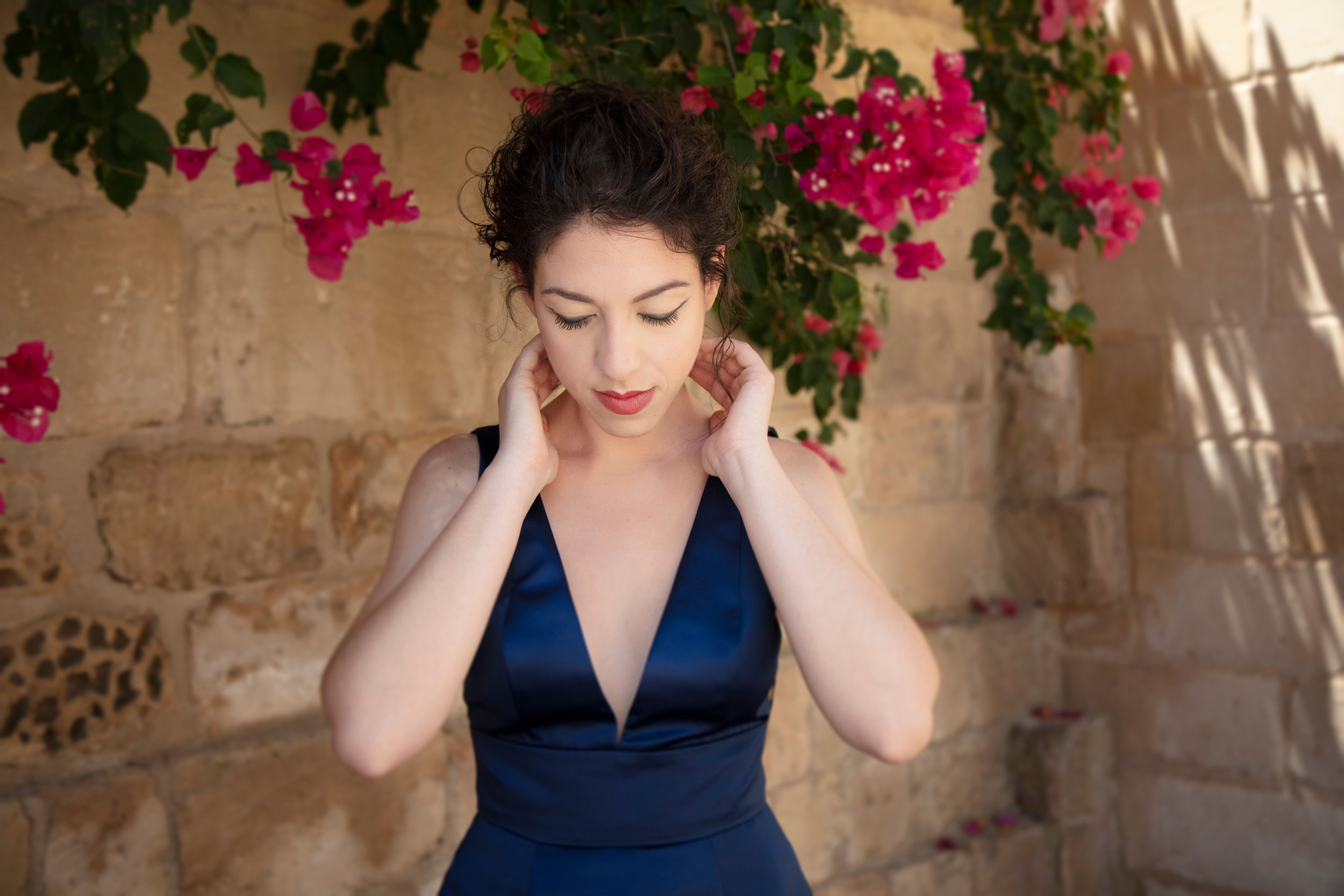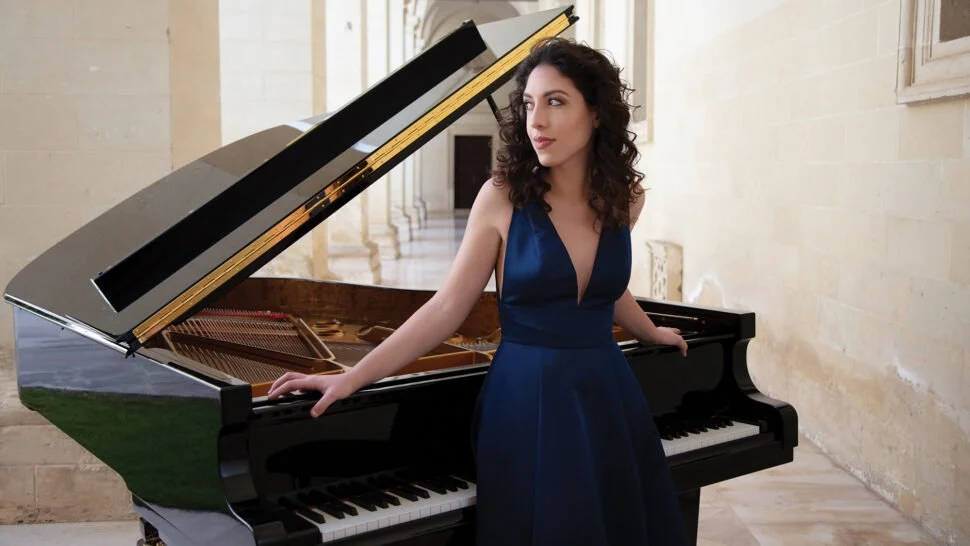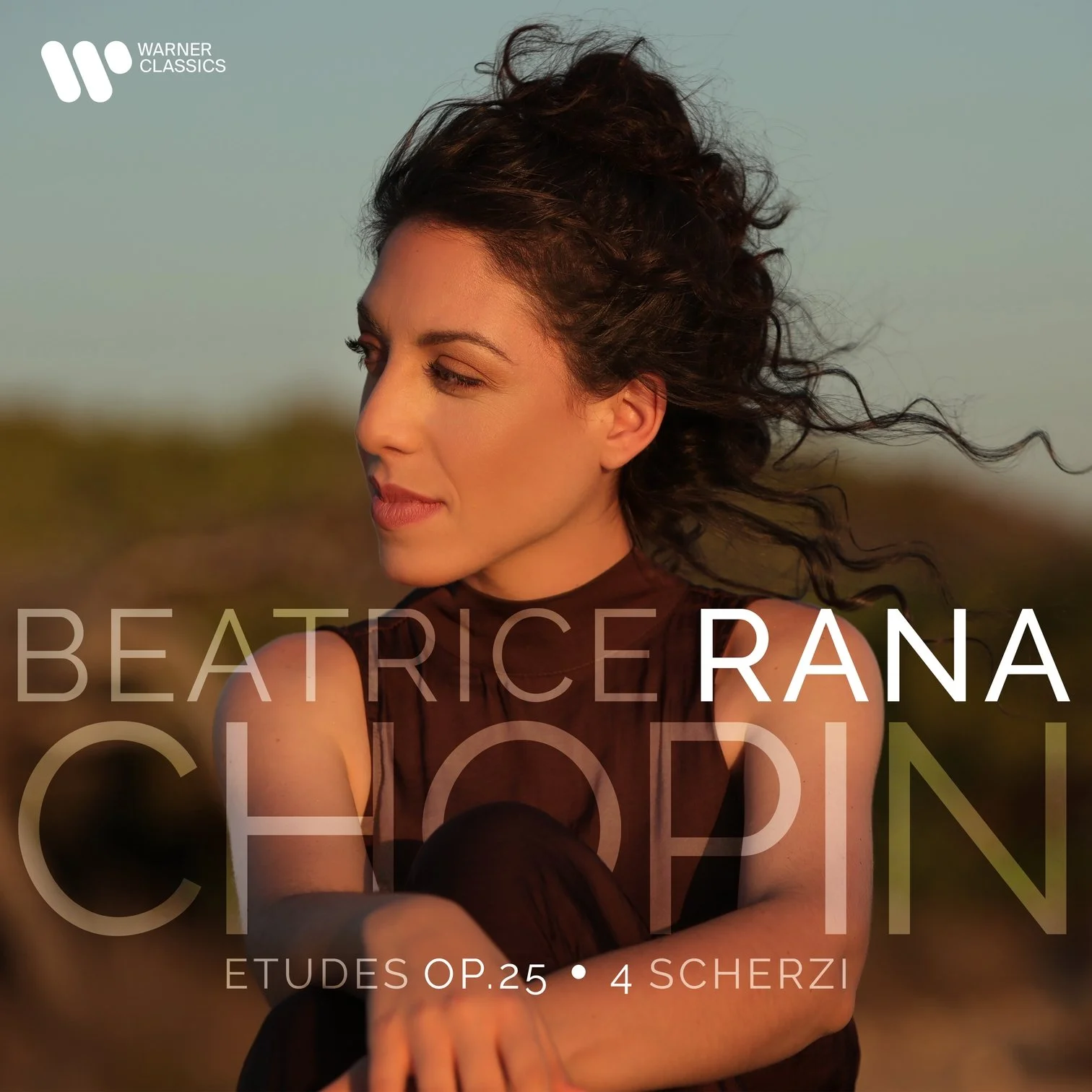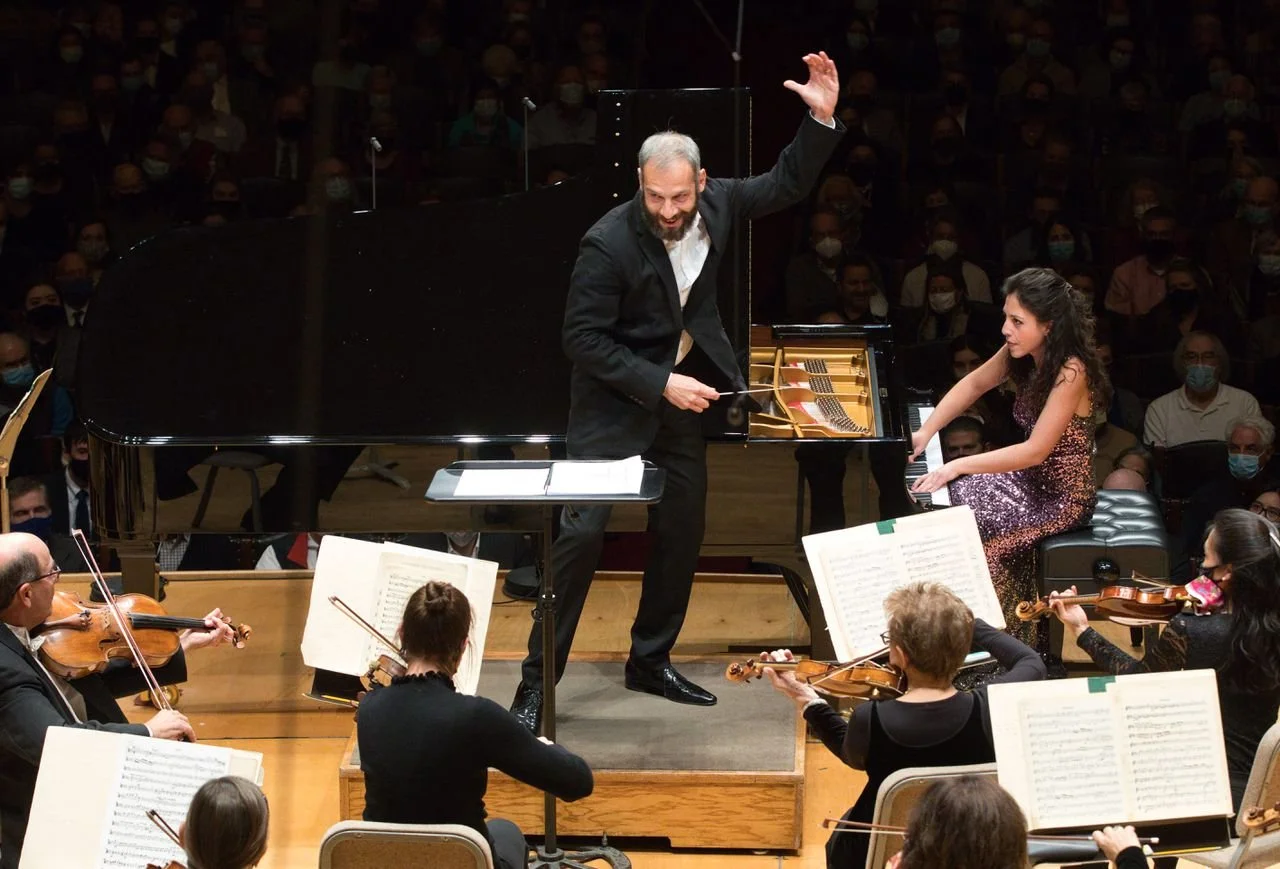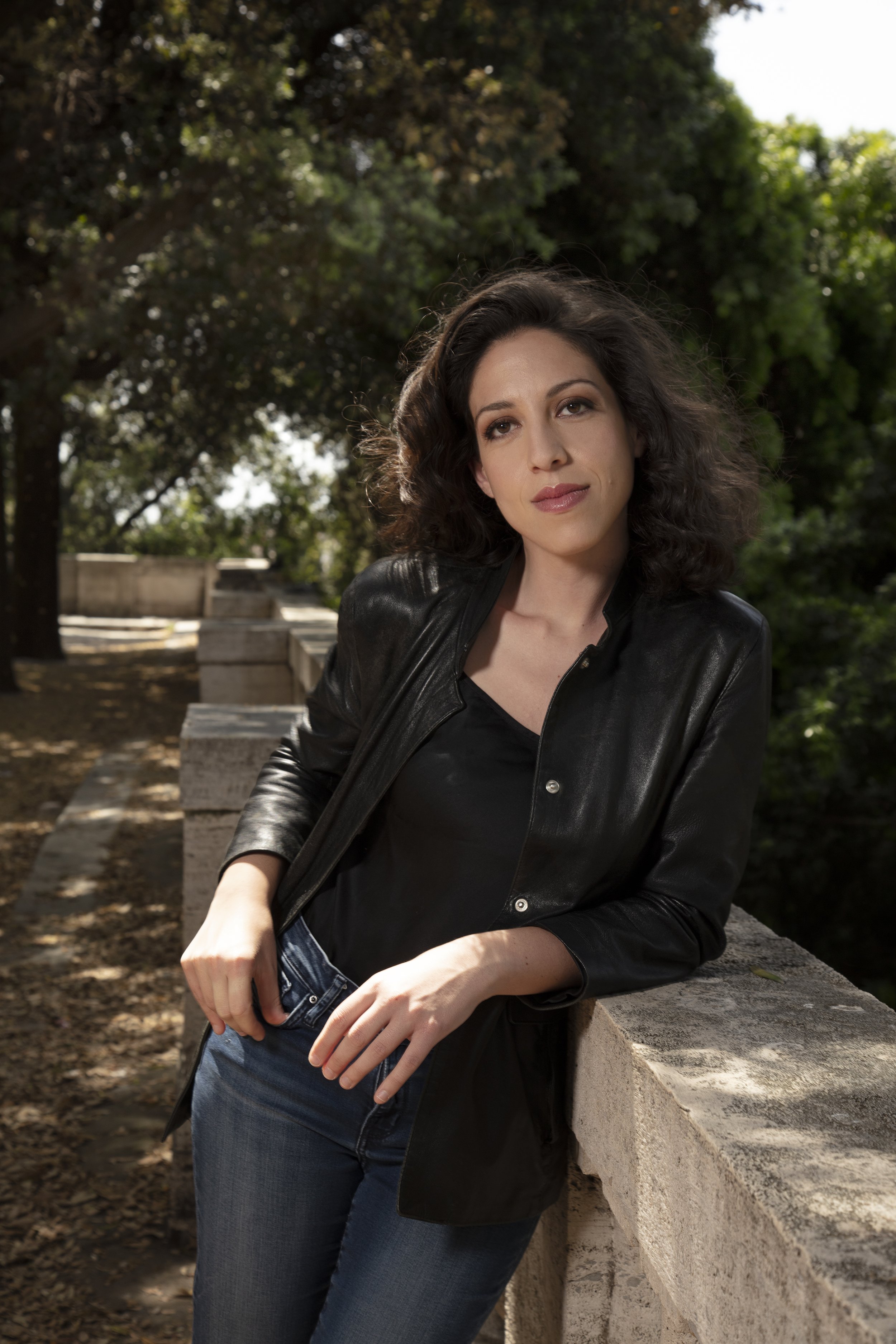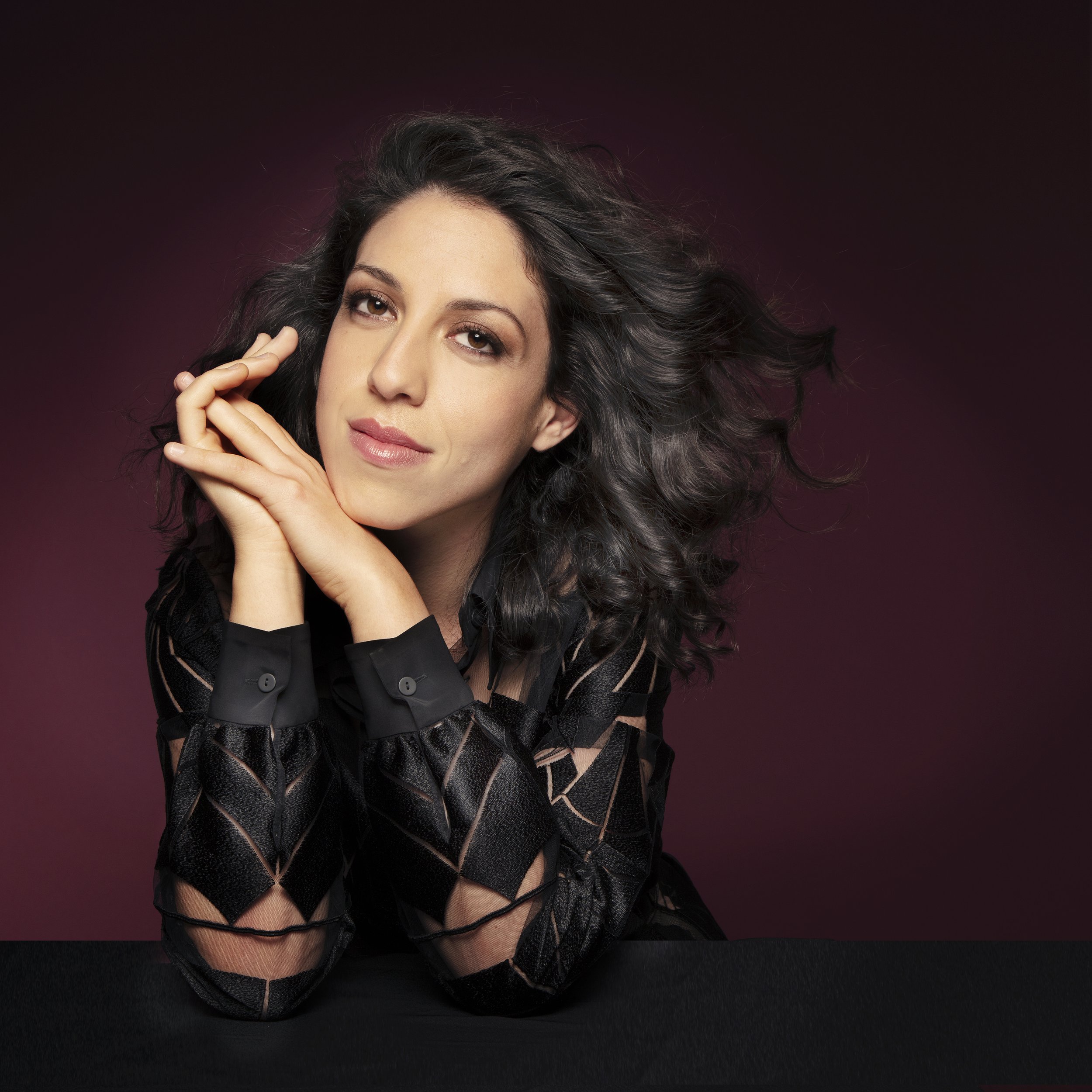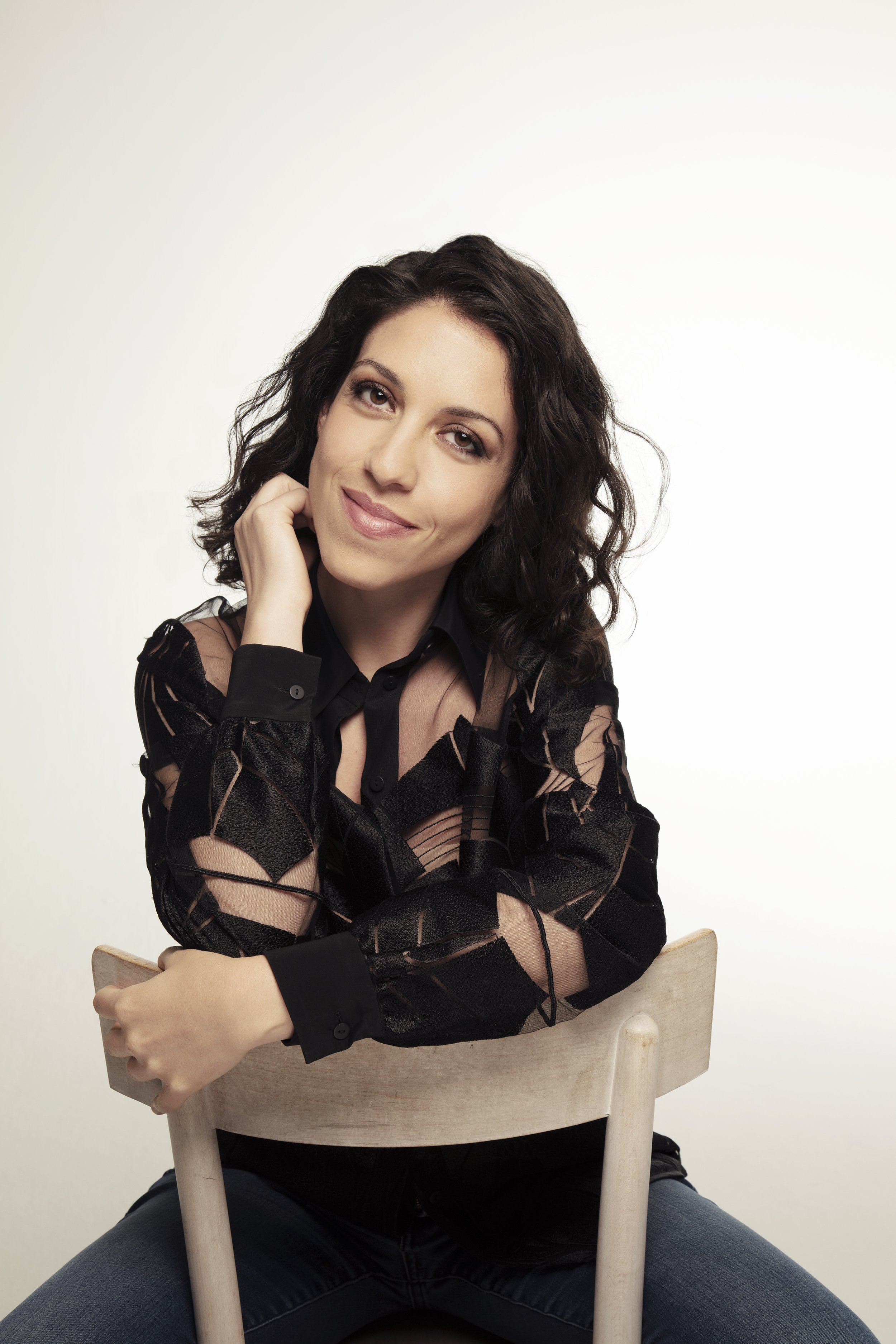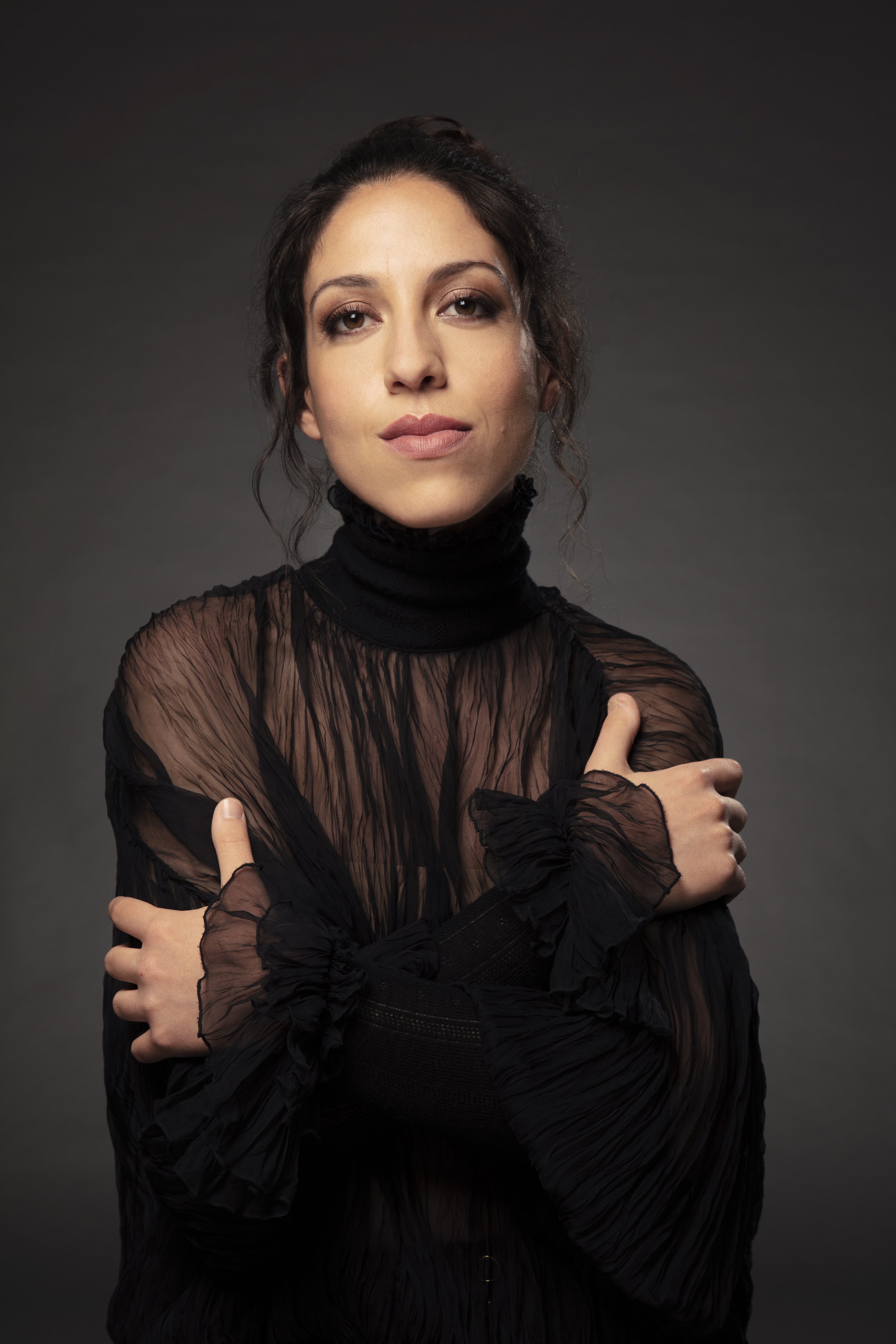beatrice rana
PIANO
“This young Italian pianist demonstrated why she is increasingly seen as one of the most insightful and prodigiously gifted artists of the new generation.”
Beatrice Rana is celebrated on the international stage as "one of the most insightful and prodigiously gifted artists of the new generation" (New York Times). Renowned for her clarity of touch, poetic sensibility and passionate interpretations, Rana performs in the major concert halls and with the world's most esteemed orchestras, conductors and artists.
Rana's 25/26 season opens with performances of Rachmaninov's Rhapsody on a Theme of Paganini at the Edinburgh International Festival with the London Philharmonic Orchestra, BBC Proms with the BBC Symphony Orchestra, Philadelphia Orchestra at the Saratoga Performing Arts Center and Lucerne Festival with its Festival Orchestra. Throughout the season, she embarks on tours with the London Symphony Orchestra and Antonio Pappano, Orchestra dell’Accademia Nazionale di Santa Cecilia and Daniel Harding, Czech Philharmonic and Semyon Bychkov and Deutsche Kammerphilharmonie Bremen and Riccardo Minasi. Further highlights include performances with the Bavarian State Orchestra, Royal Concertgebouw Orchestra, Filarmonica della Scala, Vienna Symphony, Swedish Radio Symphony Orchestra and Los Angeles Philharmonic. In recital, Rana performs a program of Prokofiev, Debussy and Tchaikovsky (arr. Pletnev), which she tours across Europe and the United States. In North America, she performs at Cleveland’s Severance Hall, Atlanta’s Spivey Hall, Chicago Symphony Center, Montreal’s Bourgie Hall, Cliburn Concerts’ Van Cliburn Series, Boston’s Jordan Hall, Philadelphia’s Kimmel Center and Carnegie Hall.
Rana collaborates with conductors such as Zubin Mehta, Riccardo Chailly, Manfred Honeck, Antonio Pappano, Fabio Luisi, Gianandrea Noseda, Susanna Mälkki, Yannick Nézet-Séguin, Paavo Järvi, Vladimir Jurowski, Jakub Hrůša, Gustavo Gimeno, Mirga Gražinytė-Tyla, Lahav Shani, Elim Chan, and Klaus Mäkelä. The many high profile orchestras she has performed with include the Berlin Philharmonic, Symphonieorchester des Bayerischen Rundfunks, Munich Philharmonic, Lucerne Festival Orchestra, Royal Concertgebouw, London Symphony, Orchestra dell’ Accademia Nazionale di Santa Cecilia, Filarmonica della Scala, Orchestre de Paris, Boston Symphony, Chicago Symphony, Cleveland Orchestra, Los Angeles Philharmonic, New York Philharmonic, Philadelphia Orchestra, San Francisco Symphony and NHK Symphony.
She gives solo recitals at the most prestigious venues worldwide and is a regular guest at major festivals like the Lucerne Festival, BBC Proms, Edinburgh International Festival, Verbier Festival, La Roque d’Anthéron Festival, Klavier Festival Ruhr and Festival de Pâques d’Aix en Provence.
Beatrice Rana records exclusively for Warner Classics. Her most recent release in 2025 features a selection of Bach’s Keyboard Concertos, which she play-directs with the Amsterdam Sinfonietta. In 2023, she recorded the piano concertos of Clara and Robert Schumann with the Chamber Orchestra of Europe and Yannick Nézet-Séguin, an album that was widely acclaimed. In 2017, Rana released a landmark recording of Bach’s Goldberg Variations, which received international critical praise and earned her Female Artist of the Year at the Classic BRIT Awards. Multiple record award wins include: Young Artist of the Year at the Gramophone Awards, Newcomer of the Year by BBC Music Magazine and Discovery of the Year at the Edison Awards. Her 2015 debut album for Warner, featuring Prokofiev’s Piano Concerto No. 2 and Tchaikovsky’s Piano Concerto No. 1, was recorded with Antonio Pappano and the Accademia Nazionale di Santa Cecilia.
Beatrice Rana attracted international attention after winning Second Prize and the Audience Award at the Van Cliburn competition in 2013. Prior to this, she won First Prize and all special prizes at the Montreal International Competition in 2011, aged 18. Rana was born into a family of musicians and began learning the piano at age four. She studied under the guidance of Benedetto Lupo at the Nino Rota Conservatory of Music in Monopoli where she also pursued composition with Marco della Sciucca. She later continued her piano studies with Lupo at the Accademia di Santa Cecilia and studied with Arie Vardi in Hannover. In 2017, Rana founded the chamber music festival Classiche Forme in her native town of Lecce, Puglia, which was awarded the Medal from Sergio Mattarella, the President of the Republic, in recognition of the cultural value it brings to the region.
“Beatrice Rana set a new standard. She made the Chopin sound as poetic and colorful as anything he ever wrote. Her playing was refined and soft-spoken in its brilliance throughout. She had the audience rapt.”
“Beatrice Rana, 26, has ferocious technique but is distinguished by her musical intelligence.”
“One of the outstanding pianists of her generation.”
“An excellent, probing young pianist.”
“Beatrice Rana set a new standard. She made the Chopin sound as poetic and colorful as anything he ever wrote. Her playing was refined and soft-spoken in its brilliance throughout. She had the audience rapt.”
“All the virtuosic flair that you’d expect, but never for its own sake … An uncommon sensitivity of touch … her Chopin always intrigued. One to watch..”
“Among the finest pianists out there.”
“Beatrice Rana possesses an old soul that belies her twenty years, and more than a touch of genius.”
Gramophone Magazine
“An artist one will want to keep an ear on.”
“There’s something of Martha Argerich about the way she combines chunky articulation and sparkling clarity with whimsical touches.”
“The remarkable pianist Beatrice Rana is an artist of truly reflective grace … combining poetry and great skill, among the most gifted musicians of her generation.”
“There has been a lot of star-is-born noise around Beatrice Rana, and it might be justified. Teamed with Antonio Pappano and his Accademia di Santa Cecilia orchestra, she is a compelling storyteller: her playing has all the sustained force and perfectly weighted brilliance you could want, but has a glint in its eye, too.”
“Beatrice Rana displays playing of preternatural sensitivity, sophistication and control, along with a touch of magic, as Bach’s theme returns at the end.”
“[She has] a calm stillness that betokens perfectly relaxed technique and allows her to bring out the innate intelligence of her musical personality.”
“Truly astounding … among the most faultless of young pianists today.”
“In a word? Beatrice Rana is fierce! And not only as a pianist but as a fully developed artist of a stature that belies her tender years… I can’t think of another recent concerto release that, beginning to end, affords greater pleasure.”
“Beatrice Rana is well on her way to the top echelon of pianists in the world.”
“She brought unerring grace to Mozart’s seemingly effortless, melodic inspiration and floated Mozartean figurations with lyric ease. In the slow movement [of the Jeunehomme concerto], which reveals depth of feeling through harmonic experimentation, Rana didn’t make the mistake of overdramatizing. And she demonstrated that the impetuous return to high spirits in the last movement really does belong to the young.”
“Many pianists wait until late into their careers to exorcise the spirit of Glenn Gould and tackle Bach’s daunting Goldberg Variations, but the Italian pianist Beatrice Rana was only 23 when she recorded them last year. Rana has been hailed as a future star in the vein of Martha Argerich and Maria João Pires, and she more than proves her mettle with this well-paced and narratively cogent rendition.”
“This album features the rising pianist in early 20th-century bravura pieces, which showcase her super-swift scale runs, dramatic firepower and airy grace. All are present in her rendering of Ravel’s “La Valse,” whose whirling, Viennese-style waltz theme gradually becomes fragmented and unhinged. Interpretively, the best performances here are Ravel’s atmospheric five-piece suite “Miroirs,” particularly “Une barque sur l’océan,” where Ms. Rana conjures a wonderful sense of motion, and Guido Agosti’s piano transcription of three sections from Stravinsky’s ballet masterpiece, “The Firebird.” In her hands, the ferociously fast rhythms of the Infernal Dance crackle with energy and momentum. The Berceuse, a lullaby, moves from dreamy and calming to enervating. The triumphant Finale has color and grandeur.”










